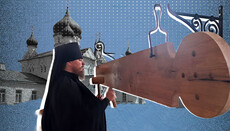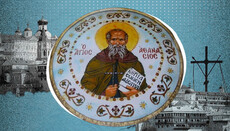Why Constantinople wants supremacy over entire Orthodoxy
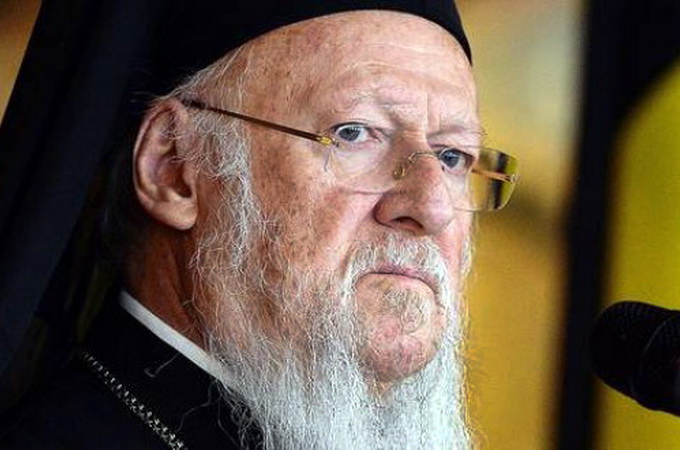
Ukrainian politicians also got to like going to Phanar (Fener), a small area of the former Constantinople, the present Istanbul, asking for recognition of the schismatic denominations.
Attempts to become a kind of "primate" of the entire Orthodox world are obvious, but what exactly compels Phanar to achieve the dominant position absolutely uncharacteristic of Orthodoxy?
After the capture of Constantinople by the Turks in 1453, the Patriarchate of Constantinople was again in the empire, only not in Rome, but in the Ottoman. And the empire as a form of the state is characterized by the fact that it includes different nations with different religions. The Turks immediately realized that it was most convenient to rule the Greek population of the empire, declaring the Patriarch of Constantinople the political head of the "Rum Millet", that is the Greek and the rest of the Orthodox Christian community in the Ottoman Empire.
In different periods, the Empire included, wholly or partially, such Orthodox countries as Greece, Moldova, Romania, Serbia, Bulgaria and others. The life of these peoples under the rule of Muslims was difficult. They were infringed in rights and burdened by heavy taxes, the most terrible of which was the “devshirme” (blood tax). Every fifth boy was taken from Christian families to raise the Janissaries, the most prominent part of the Ottoman army – the most brutal and loyal to the sultan troops. The Patriarch of Constantinople was at the head of these Orthodox nations, being at the same time their spiritual leader. And in a sense his ancient title of being Ecumenical was justified.
But in 1923, the final disintegration of the Ottoman Empire was recorded and the Turkish Republic was established, in much smaller bounds, headed by "the father of all Turks" Kemal Atatürk, who took a course to build a mono-ethnic and mono-religious state. A forced exchange of population was made: Orthodox Greeks were deported to Greece, and the Muslims – in the opposite direction. All the inhabitants of the Turkish Republic were declared ethnic Turks, even though the Kurds in the country were 20%. All languages except Turkish were banned. The entire system of education was based on the upbringing of the spirit of Turkish national unity.
Atatürk consistently built a mono-ethnic state, forcibly planting Turkish identity and discriminating against those who tried to defend their self. A campaign was launched to spread the Turkish language in the life of national minorities under the slogan: "Citizen, speak Turkish!". The Turkish government created a schismatic but national Turkish Orthodox Church, which began to forcibly seize the temples and required the Ecumenical Patriarchate be moved to Athos.
Doesn’t that remind you of anything, by the way?
The Patriarchate of Constantinople in Turkey remained practically without parishioners, and its relations with the authorities became very complicated. But that was not so bad. The very existence of the patriarchate critically depended on external key players of world geopolitics. The attempt to evict the Ecumenical Patriarchate to Athos in 1923 was prevented by the United States, Great Britain and France. In later history, it was the US that became the original guarantor of the presence of the Patriarchs of Constantinople in Istanbul and their main defence counsel to the Turkish government.
And there has always been something to protect from. The Turkish authorities have constantly interfered in the election of the patriarch, did not recognize his "ecumenical" title, refused to register the patriarchate as a legal entity, closed the theological school on the island of Halki, periodically confiscated church property and so on. But the Patriarchate of Constantinople had to pay for this "protection", like in the times of the Roman Empire, with concessions to Western patrons in matters of domestic and foreign policy, personnel policy, ecumenical activity, and so on.
It was the United States that made Aphinagor, ex-Archbishop of America, the Patriarch of Constantinople in 1949. He arrived in Istanbul for enthronement on board the plane of US President Harry Truman. Being an ardent anti-communist and Mason, a member of the "Grand Lodge of Greece", Patriarch Athinagor fully justified his appointment to the American patrons. It was he who lifted the anathema of 1054 from the Latins, it was he who in 1952 announced the convocation of the "All-Orthodox Great and Holy Council," which causes confusion and threatens to split the entire Orthodoxy. It was he who, contrary to the canons, sought to extend his influence on all Orthodox diasporas. He is remembered in history as one of the main ecumenists of the 20th century: "I do not see them (heresies) anywhere! I see only truths, partial, cut, sometimes out of place and claiming to capture and enclose in themselves an inexhaustible mystery." In the late 1960s, the Turkish authorities tried to expel him from the country, but the Americans again stood up for him.
The next patriarch, Dimitri, continued the policy of his predecessor. In 1979, he, together with Pope John Paul II, announced the creation of the Joint International Commission for theological dialogue between the Catholic and Orthodox Churches. He also conducted active preparations for the All-Orthodox Council – in 1976, 1982 and 1986 pre-council all-Orthodox meetings were held.
The current Patriarch Bartholomew received his basic theological education in Catholic educational institutions. From 1963 to 1968 he studied at the Pontifical Oriental Institute in Rome, in Switzerland and at the University of Munich. He was a lecturer at the Pontifical Gregorian University, holds a doctorate in theology from the Pontifical Oriental Institute.
His active ecumenical activities – meetings with the head of the Catholic Church, Jewish leaders, common prayers – cause a negative reaction in the Orthodox world, including on the Holy Mount Athos. His constant jurisdictional disputes with other local Churches and interference in their internal affairs led to the fact that even the unofficial mouthpiece of the Turkish government, the newspaper "Jumhuriyat", published in 2008 an article saying that the intervention of Patriarch Bartholomew into the internal affairs of other countries – "From Cyprus to Estonia, from Jerusalem to Ukraine" – creates foreign policy problems for the Turkish state. His claim to the role of "Orthodox Pope" and attempts to impose on all the Crete Council, which in fact was not all-Orthodox, threatens to split the world’s Orthodoxy.
To be fair, we must admit that in the case of the Ukrainian schism, Patriarch Bartholomew took a rather clear position of recognizing the exclusively canonical Ukrainian Orthodox Church. And his talks with the schismatics and the authorities of Ukraine have not gone beyond the scope of diplomatic curtsey.
But the most recent political events are a matter of concern to the Constantinople hierarchs for the fate of their Church. On the one hand, the Turkish authorities increasingly see the US as a counterpart, not as a partner. Turkish President Recep Tayyip Erdogan accused the US administration of organizing a recent unsuccessful coup d'état, and just the other day it was announced about the supply of American weapons to Kurds, whom Turkey considers the number one enemy for its statehood. This process of cooling relations with the US significantly reduces the scope for overseas assistance to the Patriarchate of Constantinople.
On the other hand, the recent referendum on extending the powers of the Turkish president opens the way for his long-standing plans to revive the former greatness of the Ottoman Empire. World media already openly call his policy "neo-Ottomanism" and "neo-Islamism." We can assume the resumption of attempts by the Turkish authorities to evict the patriarchate from Phanar in Istanbul to Athos or elsewhere: why would Islamists have another religious centre in their country?
And in this case, there will be no objective grounds for the existence of the Patriarchate of Constantinople itself. It simply will not have flock. The Greeks have the Greek Orthodox Church, the Greek Cypriots – the Cyprian Church. In America, there is the autocephalous American Orthodox Church which may be joined by the dioceses which are now under the omophorion of the Patriarch of Constantinople, etc.
And then the only basis for the existence of the Patriarchate of Constantinople may be its supremacy in the Orthodox world. The fact that this contradicts the original organizational structure of the Church of Christ, that this has never happened in history before, that these attempts are doomed to failure, and many other arguments – all this is put aside.
But that is the question: can it be that today patrons of the Patriarchate of Constantinople use its activity precisely for the division of World Orthodoxy? Perhaps not without reason one of the main American ideologists Zbigniew Brzezinski is credited with the phrase that "after the collapse of the Soviet Union, the main enemy of the United States is the Orthodox Church"?
0
0
If you notice an error, select the required text and press Ctrl+Enter or Submit an error to report it to the editors.
Read also
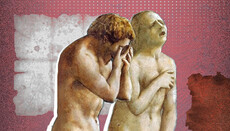
Anatomy of shame: why Masaccio's fresco conveys pain
21 February 21:05
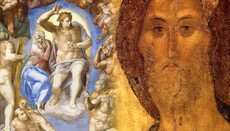
At the end of time: Will we encounter God’s wrath – or His silence?
16 February 09:00
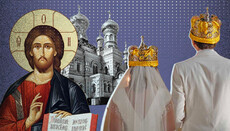
Sacred declaration of love: What is glorified in the "Song of Songs"
13 February 22:24







